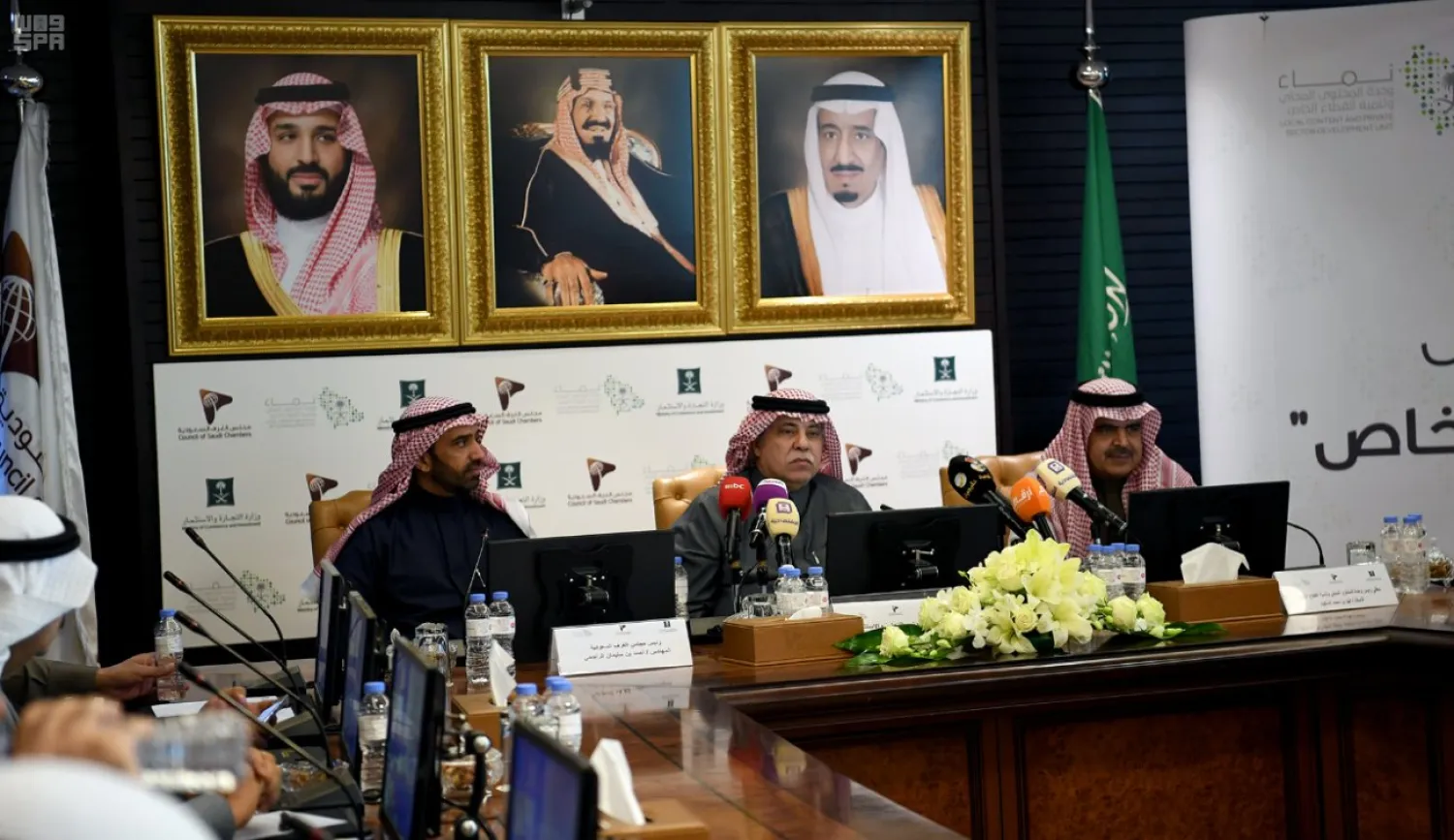Saudi Commerce and Investment Minister Majed al-Qasabi said that the plan to stimulate the private sector aims at consolidating the competitive capabilities of a number of national economy stakes.
It also aims at developing products, enhancing investment and commerce affairs environment, facilitating the implementation of business affairs in the country, improving the private sector confidence in the economy and reinforcing its development role.
The minister made his remarks during the business sector meeting in the Council of Saudi Chambers in Riyadh on Thursday.
He noted that the support presented by Custodian of the Two Holy Mosques King Salman bin Abdulaziz to executive managers and factory owners is an affirmation that the private sector is a key partner in achieving Saudi Vision 2030.
Commenting on imposing taxes on the private sector, Qasabi referred tothe Value Added Tax (VAT), which falls under the GCC system.
At five percent it is considered among the lowest in the world, he said.
“VAT will boost the state revenues that will then be employed in development projects,” he stated.
Qasabi stressed that the stimulus plan affirms the government’s confidence in the private sector and faith in its essential partnership in development. This plan will open massive dimensions for the private sector, provide job opportunities for the youth and will not affect the continuous support to the private sector.
Cabinet adviser Fahad al-Sukait revealed details about a SAR200-billion (USD53.3 billion) plan that will be poured into the private sector to stimulate it over a period of four years. He announced the launching of the first stage of the plan, which includes 17 initiatives worth SAR72 billion (USD19.2 billion).
During a meeting with businessmen in the Council of Saudi Chambers in Riyadh, Sukait revealed that several initiatives will be launched in 2017 and he promised that other initiatives will be disclosed according to the plan timetable.
He underscored the serious pursuit to reinforce competitive capability, improve domestic services and products’ attractiveness and enhance expenditure, which would boost the consumer’s confidence in the local product.
As for the “Green Card” for foreign investors, he stated: “This is still being considered. It is a massive step that requires thorough assessment. It will be announced when completed.”









